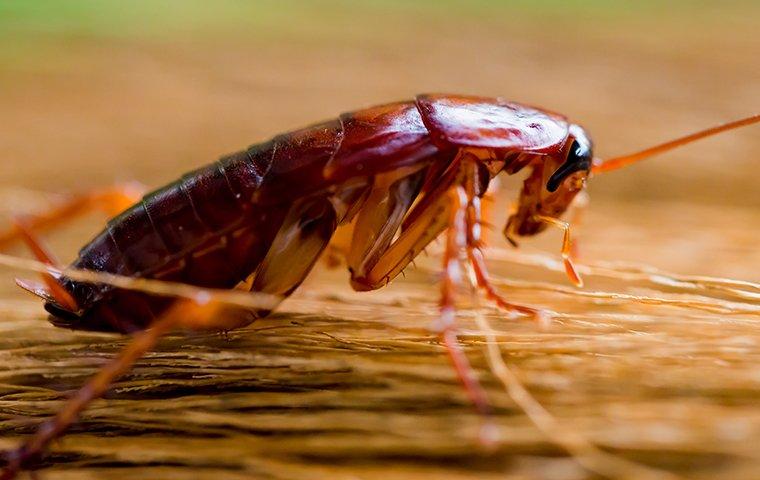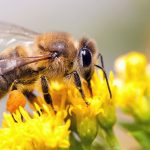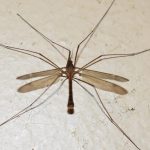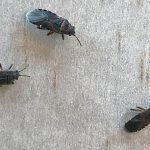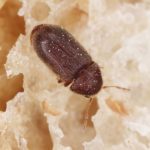Are you sick and tired of discovering cockroaches crawling around your precious potatoes? As someone who loves potatoes just as much as you do, I understand the frustration of finding these creepy critters in your pantry.
Not only are they repulsive, but they can also pose a serious health risk by contaminating your food. But don’t fret, dear reader.
There are ways to protect your beloved spuds from these unwanted guests. First, it’s crucial to understand why cockroaches are attracted to potatoes in the first place.
Potatoes provide a warm and moist environment, the perfect breeding ground for these pesky insects. Additionally, potatoes are a food source for cockroaches, making them an easy target.
Store your potatoes in a cool, dry, and well-ventilated area to keep them safe and sound. Make sure there are no cracks or openings in the storage unit that could allow cockroaches to sneak in unnoticed.
Another effective method is to sprinkle diatomaceous earth around your potato storage area. This non-toxic substance dehydrates cockroaches and effectively keeps them at bay.
Lastly, keeping your kitchen clean and clutter-free will limit potential hiding spots for cockroaches. Following these simple steps, you can enjoy your favorite spuds without worrying about unwanted pests lurking around.
So, let’s find out more.
What Attracts Cockroaches to Potatoes?
Contents
Potatoes are a beloved staple food in many households, but unfortunately, they can also attract unwanted guests – cockroaches.
These pesky insects are drawn to potatoes like moths to a flame, thanks to their high starch content and moisture levels. But don’t let that discourage you from enjoying your spuds.
With proper storage and maintenance, you can protect your potatoes from these unwanted visitors and keep them fresh for longer. Cockroaches love snacking on starch, and potatoes are a prime source of nutrition for them.
The moisture in potatoes is another factor that attracts the insects. Potatoes carelessly left out or not stored properly are more likely to attract cockroaches.
Since these nocturnal creatures often come out at night searching for food, storing potatoes in tightly sealed containers is crucial to prevent cockroach infestation. But that’s not all – the smell of decaying organic matter also attracts cockroaches.
If potatoes are left out for too long or start to rot, they emit a strong odor that can be irresistible to cockroaches. To prevent this, inspecting your spuds regularly and discarding any that show signs of decay is essential.
Maintaining a clean and organized living space is crucial in deterring cockroaches from invading your home. Cockroaches thrive in dirty and cluttered environments, making finding hiding places and food sources easier.
Keeping your kitchen and surrounding areas clean and debris-free can significantly reduce the risk of cockroach infestation. In addition to proper storage and maintenance, you can use natural remedies like essential oils to repel cockroaches from your potato storage area.
Peppermint, lemon, and lavender have strong scents that deter pests like cockroaches. Add a few drops of these oils to cotton balls and place them near your potato storage area.
Storing Potatoes in Airtight Containers
Potatoes are a versatile pantry staple that can be used in countless dishes.
But the last thing you want is to find unwelcome critters rummaging through your potato stash. Fear not. The solution to this problem is as simple as storing potatoes in airtight containers.
Cockroaches are notorious for being attracted to the smell of food, and potatoes have a distinct aroma that can draw them in. You can effectively prevent these pests from detecting the scent by sealing your potatoes away in an airtight container.
However, it’s important to note that not all containers are created equal. Before storing your potatoes, make sure they are dehydrated.
Moisture can cause rot, and airtight containers trap dampness, leading to mold growth. Keep your spuds safe by placing them in clean, dry containers with tight-fitting lids or rubber seals.
But even with our knight’s armor of airtight containers, we must remain vigilant. Condensation can still form inside, leading to mold growth if left unchecked.
To combat this, place a paper towel at the bottom of the container to absorb any excess moisture. Lastly, remember to regularly inspect your potatoes for any signs of spoilage or mold growth.
With these easy steps, you can enjoy fresh and pest-free potatoes whenever you cook. In conclusion, storing potatoes in airtight containers is a simple yet effective way to keep them free from unwanted pests.
Ensure your potatoes are dehydrated before storing them, and use clean and dry containers with tight-fitting lids or rubber seals.
Keeping the Kitchen Clean and Free of Food Debris
If you’re tired of finding these creepy crawlies in your kitchen, it’s time to take action and keep your kitchen clean and free of food debris. Think of your kitchen as a fortress, and you are the protector of your kingdom.
Like knights wear armor to shield themselves, storing your potatoes in airtight containers can protect them from cockroaches. But remember that moisture and mold can also harm your spuds, so place a paper towel at the bottom of the container and regularly check for spoilage.
Cockroaches love feeding on food particles left behind on surfaces, floors, and sink drains.
Wipe down countertops and surfaces regularly with a disinfectant cleaner to prevent them from invading your kitchen. Sweep or vacuum the floors often, paying special attention to areas around appliances and corners.
Properly storing all food items, including potatoes, is crucial for keeping cockroaches at bay. Keep potatoes in a cool, dry place like a sealed pantry or cabinet.
Avoid leaving them out on the counter or storing them in untightly sealed bags, as this can attract cockroaches faster than you can say “Roach Attack.” Lastly, remember to clean your sink drain regularly.
Cockroaches love to breed in food particles trapped in the drain. Use a drain cleaner or baking soda and vinegar mixture to clear out debris and keep your drain squeaky.
Natural Remedies for Repelling Cockroaches
Here are some natural options to try:
Peppermint oil
First on the list is peppermint oil, a refreshing and natural insect repellent that is toxic to cockroaches.
Mix 10-15 drops of peppermint oil with one cup of water and spray the solution around the areas where cockroaches are likely to hide. The minty aroma will keep your home smelling fresh while keeping the pesky insects at bay.
Bay Leaves
Not only are they a staple in many dishes, but they also work as a natural cockroach repellent.
Place bay leaves in your pantry, cabinets, or other areas where you store food items. The strong scent of bay leaves will deter cockroaches from making themselves home in your kitchen.
If you’re looking for a more pungent option, garlic and onion may be what you need. These two ingredients have strong odors that repel cockroaches, so place cloves where they are likely to hide, such as under sinks or cabinets.
You might shed a few tears while chopping these foods, but keeping those creepy crawlers away is worth it. A mixture of borax and sugar can also be an effective way to kill cockroaches.
Mix equal parts of borax and sugar and sprinkle the mixture in areas where cockroaches are likely to crawl. The sugar attracts the roaches, while the borax kills them.
Catnip
Lastly, catnip is not just for your feline friends – it’s also a natural repellent that is toxic to cockroaches but safe for humans and pets. Place catnip leaves around the areas where cockroaches are likely to hide.
Your cat might enjoy playing with them, but they’ll help keep the cockroaches away. In conclusion, natural remedies can effectively and safely repel cockroaches from your home without using harsh chemicals.
Remember to keep your kitchen clean and free of food debris, regularly clean sink drains, and store all food items in cool, dry places to prevent breeding.
Inspecting Potatoes for Signs of Infestation
Potatoes are a beloved staple in many households.
They can be mashed, baked, fried, or roasted perfectly, providing a delicious addition to any meal. However, these tasty tubers are also a favorite of pesky pests like cockroaches.
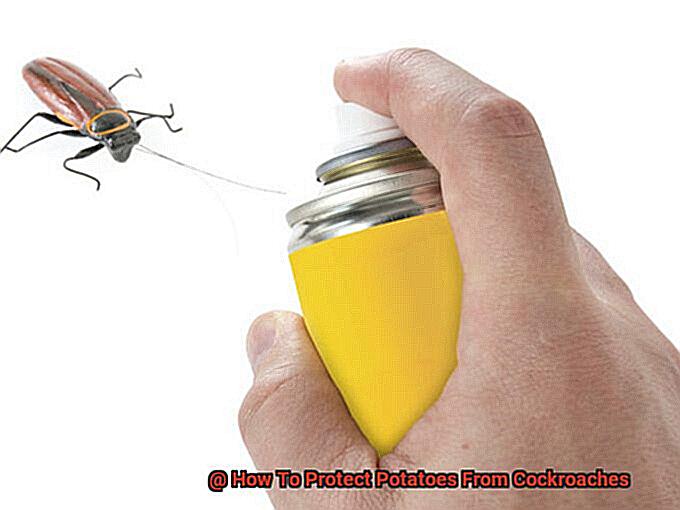
That’s why inspecting potatoes for signs of infestation is crucial in protecting them. To begin your inspection, start by examining the surface of the potato.
Keep an eye out for small holes, cracks, or blemishes that could be evidence of pest damage. Next, it’s time to cut open the potato and take a closer look.
Check for tunnels or caves that could have been created by larvae feeding on the potato from the inside out. If you notice brown spots or discoloration on your potato, this could indicate that bacteria or fungi have infiltrated the potato due to cockroach activity.
In this case, it’s essential to discard the potato immediately to avoid any risk of contamination. Now, we understand that no one wants to waste good food.
We suggest taking preventative measures to protect your spuds from cockroaches and other pests. Storing your potatoes in sealed containers or bags can prevent pests from accessing them.
Disposing of Affected Potatoes Immediately
Keeping cockroaches away from your precious potato stash can be a difficult task.
But what happens when you discover these pesky pests have already infiltrated your potato storage area? This is where disposing of affected potatoes immediately becomes crucial.
Suppose you notice any cockroach activity in your potato storage area, such as egg casings or droppings. Start by sorting through your potatoes and removing any signs of damage or infestation.
Cockroaches may have laid eggs inside the potato or contaminated it with bacteria and pathogens.
Next, it’s time to dispose of the affected potatoes promptly and adequately. But wait, there’s more to it than tossing them in the trash can.
You need to dispose of them in a way that won’t attract more cockroaches. Seal them in a plastic bag and dispose of them in an outdoor trash can with a tight-fitting lid.
Avoid leaving the bag out for long periods since it may attract more pests. By disposing of affected potatoes immediately and correctly, you can help prevent further infestations and protect your remaining potatoes from damage.
It’s essential in any comprehensive strategy for protecting your potatoes from cockroaches. Remember, preventing the infestation is always better than curing it.
Inspect your potatoes regularly for signs of infestation and store them in sealed containers. If you find any affected potatoes, don’t hesitate to dispose of them immediately.
Conclusion
In conclusion, protecting your potatoes from cockroaches is essential to ensure they remain safe and healthy for consumption.
These pesky pests are attracted to potatoes due to their high starch content and moisture levels, making them the perfect breeding ground. Fortunately, there are several ways to safeguard your beloved spuds.
Firstly, storing potatoes in cool, dry, and well-ventilated areas is crucial. This helps prevent cockroaches from finding a cozy spot to breed.
Sprinkling diatomaceous earth around potato storage areas can also effectively keep these unwanted guests at bay. Keeping your kitchen clean and clutter-free is another vital step in limiting potential hiding spots for cockroaches.
Natural remedies such as peppermint oil, bay leaves, garlic and onion, borax and sugar mixture, and catnip leaves can repel these pests without harsh chemicals. Regularly inspecting potatoes for signs of infestation is essential in preventing further damage caused by cockroach activity.
Following these simple steps lets you enjoy your favorite spuds without worrying about unwanted pests lurking around.

